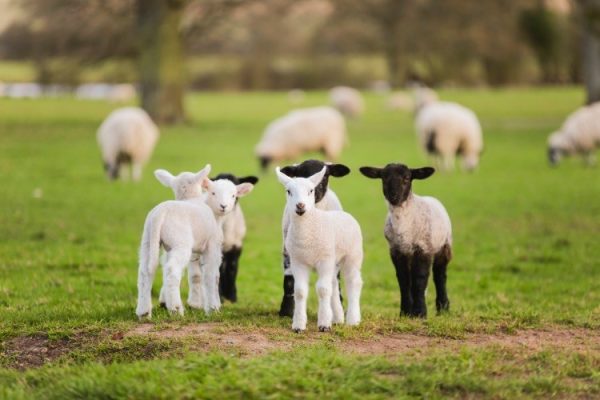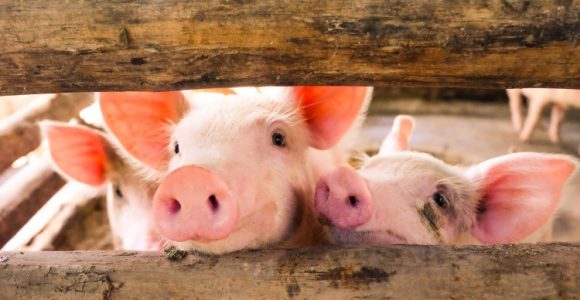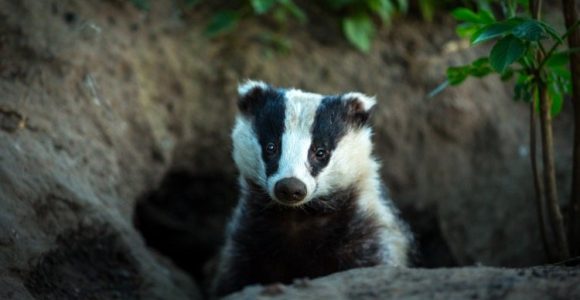Animals

Scientists are uncertain how many animals inhabit planet Earth. According to a recent study in the journal PLoS Biology, there are 8.7 million species of animal life on our planet—and every year, new species are discovered. Each and every creature is an integral part of the tapestry of life. When one creature disappears the fabric of the biosphere begins to unravel. The great unravelling that is underway now is completely caused by humankind.
We tend to view the world we live in—and often all other life, except domestic animals—as the “other.”
Animal Rights
Our belief in human supremacy (often referred to as anthropocentric thinking) allows us to place ourselves at the center of the universe. We view our uniqueness as a sign of separation from the rest of life that swirls around us and within us.
The belief that we are superior to other life-forms encourages us to use the natural world according to our desires and whims. After all, we have “dominion” over all living creatures according to some religious mythologies. As we pull away from any physical interaction with nature, we fortify those dangerous beliefs that lie at the foundation of our most destructive actions.
We raise and kill billions of animals each year. These non-human beings are raised to never fulfil their life to enjoy the company of their kind, to breed naturally and raise their young. All are killed when they are virtual children and have finished their initial growth spurt. We have despoiled the land, the air and the waters of the world in our quest to raise food for the animals we eat. And we damage our own health in the process.
This extinction of land life is matched in the world’s oceans. Oceans are being emptied of native fish at an alarming rate to satisfy our appetites. Commercial fishing operations needlessly kill sea creatures that are not viable in the market or are too small and waste them. At the present kill rate, the seas will be virtually empty by 2050.
Sentience
One of the qualities that develops with a nervous system is “sentience.” Eighteenth century philosophers used the concept to distinguish between the capacity to think and to feel. We see it as the ability to experience sensations. We sentient creatures have an emotional life. We can feel fear and pain. We can suffer. We can play and feel affection.
Anyone who has spent even a short time around animals knows that they share these experiences with us. Even if you have only viewed animals on-screen, you will have seen them display concern and compassion for each other. They share these traits with us and do not simply live to please us or for our amusement and use.
Eating Meat
The most dramatic and harmful effect of our anthropocentric world view is the killing of animals for food. Regardless of cultural habit, myopic science or anthropological justifications, eating animals in the modern world is a barbaric practice. The nutritional arguments have been settled and the environmental damage understood. Meat, milk, dairy and egg consumption is harmful to our health and the health of the environment.
It is stopping, not reducing that is the solution. Anyone who wants to help create a sustainable world should stop the consumption of all animal foods.
Either we accept that animals are sentient, or we don’t. The industries that raise, slaughter and distribute animal products are not driven by a nutritional need; it is important that we remember that. The science is clear. The sacrifice of life is merely a desire. The principles of honouring life do not inhabit many grey-zones. The only way to stop the killing machine is to stop consuming the products. Without consumers the needless sacrifice of life stops.
The single most important thing that we can do on a daily basis to reduce environmental damage is to stop using animal products.
The Conflicted Ecologist
The simple fact that the most effective action that an individual can make in daily life to halt climate change is to stop using animal products—is irritating to many. This is particularly true when the imagery of hunter-gatherer people strongly influences the “eco-minded.” Tribal people have an iconic value to many environmentalists for good reason.
Hunter-gatherers had a unique and powerful relationship with the environment. Their lives depended on understanding the habits and migration patterns of animals, the signs of seasonal change, and the burden of material goods. They lived lightly on the earth and represent a simpler way of living for many. Having respect for those indigenous cultures is one thing; romanticizing them and using them as a model for modern living is absurd. There are two types of evolution: biological and cultural.
The environment we all share is radically changed from the idyllic forests and plains of the imagination. Our challenge is to avoid the incremental tweak of the system that makes everyone feel as if they are making a noble sacrifice. We are not the victims. Threats to all life require bold steps that engage full commitment. Meatless Mondays do not model the dedication that is needed.
When needless killing is done in the service of personal pleasure it harms the fabric of our society and fractures our bond with nature.

Domesticated Animals
Animal Sentience One of the qualities that develops with a nervous system is “sentience.” Eighteenth century philosophers used the concept to distinguish between the capacity to think and to feel. We sentient creatures have an emotional life. We can feel... Read more

Wild Animals
The Human Impact on Animal life A study in Proceedings of the National Academy of Sciences of the United States of America in 2018 illustrated the impact of humanity on biodiversity. The 7.6 billion humans on Earth are equal to just 0.01... Read more

